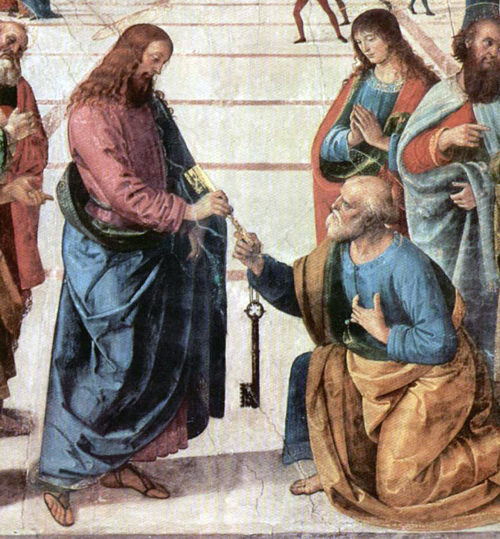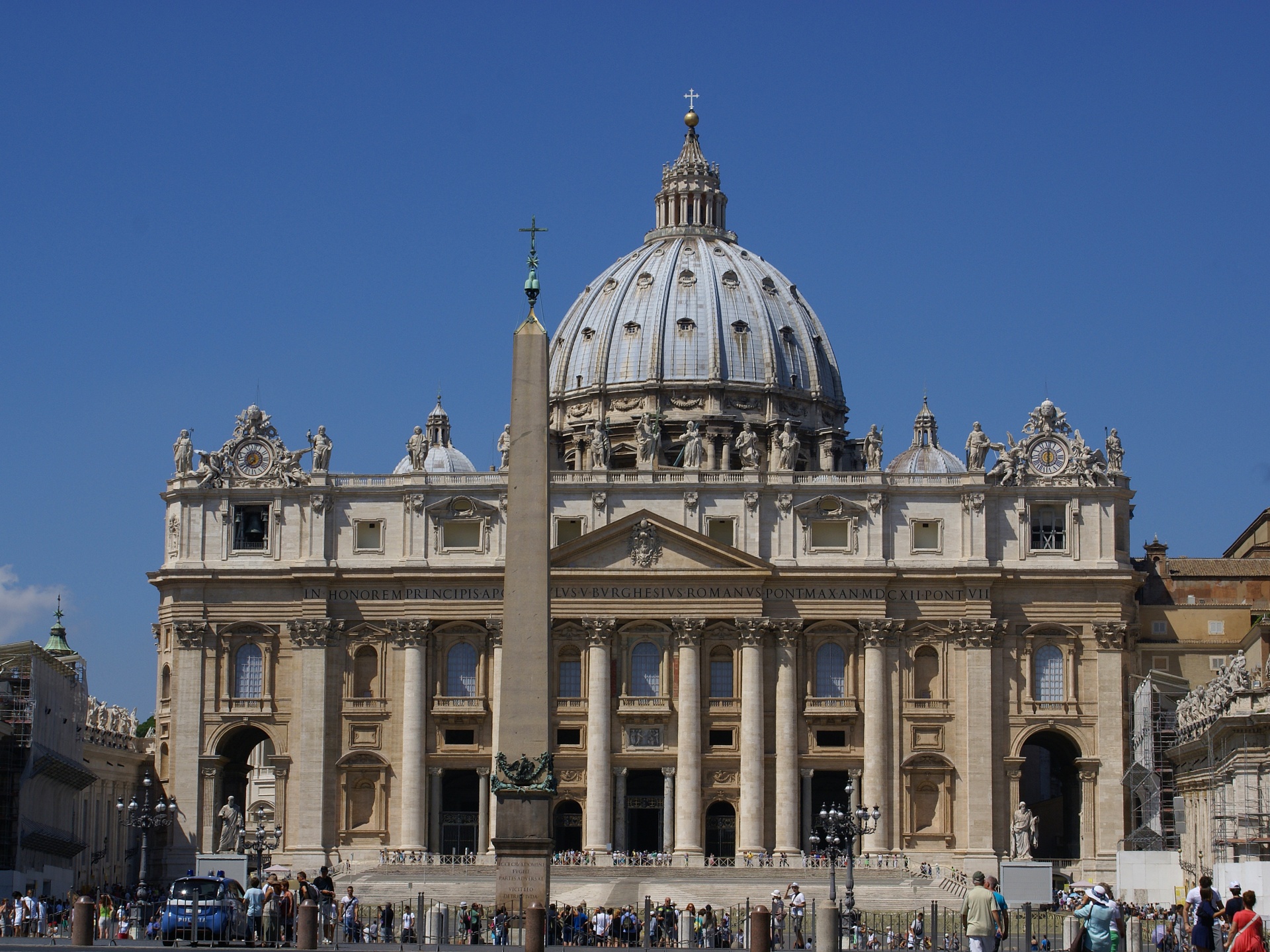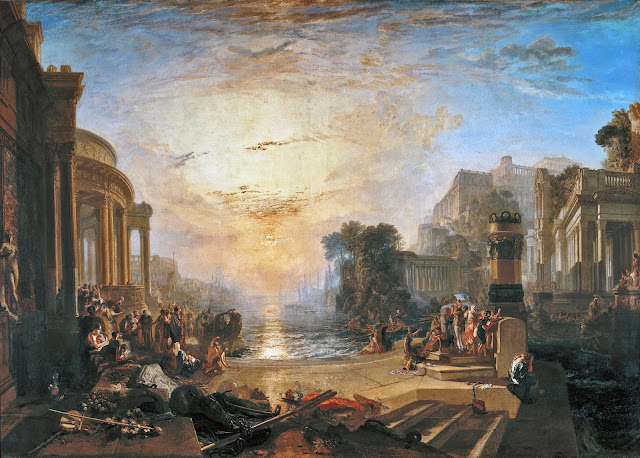 |
| St. Peter and the Keys. |
Here is part of a correspondence I had recently. People like to throw out a lot of accusations, if you are Catholic. Some may have a half truth, others are just wrong.
----------------------------------------------------------------------------------
I think I answered your point on "Petra" and "Petros," but regardless, it isn't so necessary to prove Peter to be head of the Apostles.
Let's look at the passage again.
Mathew 16:17-19
"…17 Jesus replied, “Blessed are you, Simon son of Jonah! For this was not revealed to you by flesh and blood, but by My Father in heaven.
18 And I tell you that you are Peter, and on this rock I will build My church, and the gates of Hades will not prevail against it.
19 I will give you the keys of the kingdom of heaven. Whatever you bind on earth will be bound in heaven, and whatever you loose on earth will be loosed in heaven."..."
To follow up on my point of lineage, ie. tracing your church back to Jesus through history, the verse "and the gates of Hades will not prevail against it." By saying the Catholic Church fell away until, whenever your church started, then you are saying "Hades" "Hell" or "death" have prevailed until the 20th century.


